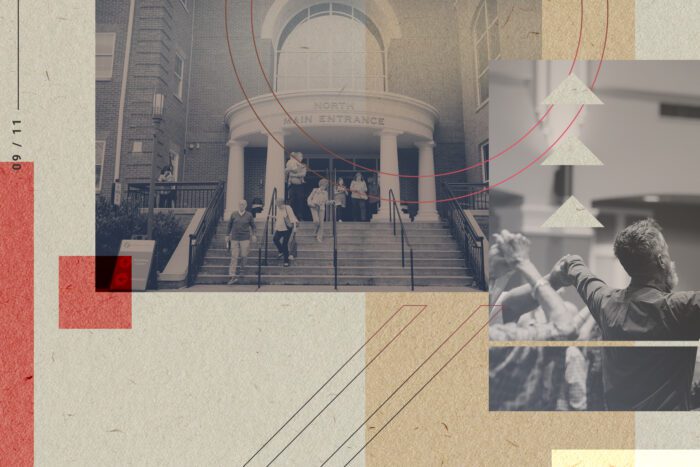Luke beautifully weaves four hope-filled canticles (songs) into his first two chapters:
- Mary’s praise (Magnificat 1:46-55),
- Zechariah’s Prophecy (Benedictus 1:67-79),
- the Angels’ song (Gloria in Excelsis Deo 2:14), and
- Simeon’s prayer (Nunc Dimittis 2:28-32).
Luke, more than any other writer in the New Testament, fills his narrative of Christ’s life with praise, praise that causes hope to flourish. The last two sentences in Luke’s Gospel reflect the aim of the author’s heart—“After worshiping him, they [the disciples] returned to Jerusalem with great joy. And they were continually in the temple praising God” (Luke 24:53). The disciples returned to Jerusalem praising God because their hope was secure in Christ.
A powerful connection binds worship (our response to God’s revelation) to hope. The more we understand who God is, the more hope-filled our worship will be.
Consider Mary’s opening words of praise:
“My soul praises the greatness of the Lord, and my spirit rejoices in God my Savior, because he has looked with favor on the humble condition of his servant” (1:46-48).
Mary’s attention is directed first and foremost to the greatness of God. Her hope, and the hope of generations to come, is based not on a wish, but on the reality of God’s greatness. At the end of her song, she says these words, remembering God’s great works of the past, and in the same breath, looking forward to His unending mercies: “He has helped his servant Israel, remembering his mercy to Abraham and his descendants forever, just as he spoke to our ancestors” (1:54-55). Her hope for the future is buoyed by her active remembrance of God’s past faithfulness.
The second canticle Luke records is from the once-silent mouth of Zechariah, John the Baptist’s father. Moments after Zechariah asked for a writing tablet and wrote his son would be named John, the elderly priest’s muteness turned into praise with the following words:
“Blessed is the Lord, the God of Israel, because he has visited and provided redemption for his people.”
The children of Israel had been praying and hoping to see their Savior for hundreds of years. However, Zechariah becomes wonderfully specific as he predicts specific details concerning his own newborn son, John, and John’s role as the prophetic herald of the coming Messiah:
“And you, child, will be called a prophet of the Most High, for you will go before the Lord to prepare his ways, to give his people knowledge of salvation through the forgiveness of their sins. Because of our God’s merciful compassion, the dawn from on high will visit us to shine on those who live in darkness and the shadow of death, to guide our feet into the way of peace” (1:76-79).
Zechariah knew his son would prepare the way for the Hope of the World, and he couldn’t help but respond in praise.
The third song Luke records, the song of the angels, exudes hope. What must it have been like to be one of the shepherds hearing the angels’ song on that Judean hillside?
“Then an angel of the Lord stood before them, and the glory of the Lord shone around them, and they were terrified. But the angel said to them, ‘Don’t be afraid, for look, I proclaim to you good news of great joy that will be for all the people: Today in the city of David a Savior was born for you, who is the Messiah, the Lord. This will be the sign for you: You will find a baby wrapped tightly in cloth and lying in a manger.’ Suddenly there was a multitude of the heavenly host with the angel, praising God and saying: ‘Glory to God in the highest heaven, and peace on earth to people he favors’” (Luke 2:9-14).
The shepherds were the first of “all the people” to hear the angel’s news, and over two thousand years later we as believers are also numbered among “all the people.” For all of God’s people, is there anything more hope-filled than the gospel? Is there anything more worthy of worship than Jesus Christ?
The fourth and final canticle Luke records is “sung” by the devout, righteous man name Simeon. Consider the glorious cloud of hope Simeon lived under each day of his life as he watched and waited for the Lord’s Messiah. His watching and waiting was not wishful thinking; the Holy Spirit had promised Simeon that he “would not see death before he saw the Lord’s Messiah” (Luke 2:26). The lyrics of Simeon’s song resound with hope as Simeon holds Jesus and rejoices, “For my eyes have seen your salvation. You have prepared it in the presence of all peoples—a light for revelation to the Gentiles and glory to your people Israel” (Luke 2:30-32). The Holy Spirit’s promise to Simeon was fulfilled, and Simeon’s worship expressed hope secured. Simeon is physically holding Hope. The light for the Gentiles and the glory of Israel had finally come.
Hope reverberates through the canticles in the first two chapters of Luke, not as expressions of wishful thinking but as praise to the only One worthy of our praise. As the writer of Hebrews reminds us, “We have this hope as an anchor for the soul, firm and secure” (Hebrews 6:19).







